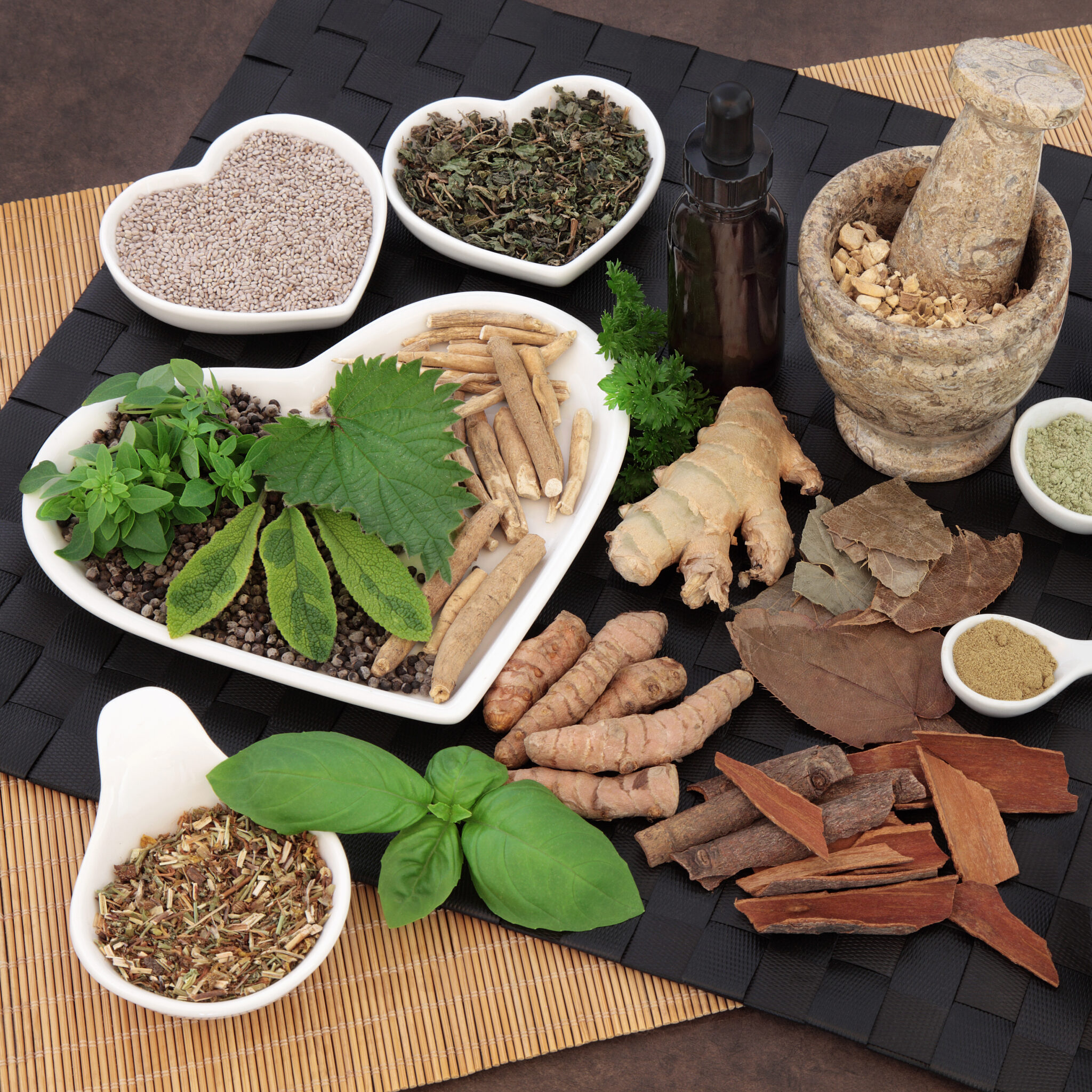
In Ayurveda, the secret to lifelong health lies in harnessing nature’s gifts, particularly when it comes to heart health. Heart disease is the leading cause of death in the US, so it is essential to look at heart health. Exercising and eating a nutritious diet can help, but it is not enough. So here are the top 3 Ayurveda herbs for heart health.
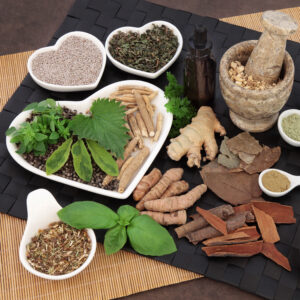
In the Ayurvedic tradition, maintaining heart health is a balance of diet, lifestyle, and the use of specific herbs. With heart disease – all three doshas are out of balance, and these 3 herbs for heart health are central to this holistic approach, each offering unique benefits to the cardiovascular system.
Arjuna, known scientifically as Terminalia Arjuna, is one of the top 3 in Ayurveda for heart health. Revered for its strengthening effect on the heart muscle, it is a cardioprotective herb that supports not only cardiac muscle but enhances coronary blood circulation too.
Used as a heart tonic, studies show that the bark of Arjuna shows a significant reduction in chest pain by lowering levels of cortisol (the stress hormone). Angina (chest pain) is due to an aggravated Kapha, but the pain associated with it is a symptom of aggravated Vata. An aggravated Kapha leads to the production of Ama (toxic remains in the body due to improper digestion) in the body.
This Ama accumulates in the heart channels and causes a blockage, leading to an aggravated Vata. This causes pain in the chest area. Arjuna has Kapha balancing properties. It helps to reduce Ama, removes the blockage of heart channels, and calms the aggravated Vata. This helps reduce chest pain.
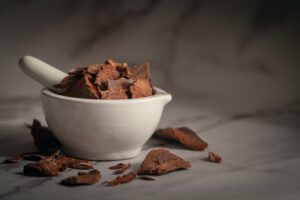
Ginger is a common kitchen spice. Its anti-inflammatory and antioxidant properties make it beneficial for heart health, helping to reduce heart disease risk factors like high cholesterol and blood pressure. It works by preventing blood clots in the blood vessels of the heart. The antioxidants present in ginger help in reducing the formation of plaque in the arteries caused by high cholesterol. Ginger has active compounds that are cardioprotective.
It is a cardiotonic, antihypertensive, anti-hyperlipidemia, and antiplatelet. Therefore, it reduces blood pressure, helps with your blood lipid profile, and helps prevent blood clots, which are some leading causes of heart disease and major cardiac events.
Ginger can be incorporated into a healthy diet to help manage the risk of heart disease. However, it is important to discuss the addition of ginger, especially as a supplement, because it may interact with some heart medications and blood thinners.
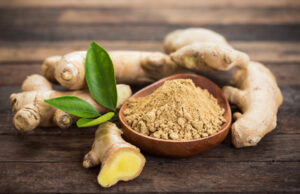
Ashwagandha, or Withania somnifera, completes the list of the top 3. Known for its stress-reducing properties, Ashwagandha helps in mitigating stress-related effects on the heart; the stress hormone, cortisol, gets released into the bloodstream at times of stress. People undergoing stress typically experience irregular heartbeat and palpitations. Ashwagandha is known as an adaptogenic herb, or a herb that’s effective in managing stress.
If you suffer from heart palpitations, they are a common symptom of anxiety, whether it is chronic anxiety or caused by an immediate factor. A study done at the Department of Pharmacology, University of Texas Health Science Center, indicated that ashwagandha extracts acted like GABA, the neurotransmitter that regulates anxiety. This is the reason ashwagandha is touted as an antianxiety herb
A study on stressed people showed that administering high-concentration, full-spectrum ashwagandha root extract in the form of capsules for 60 days brought the cortisol levels of the test subjects down by 28 percent. The decrease in cortisol levels also marks a reduction in palpitation.
Given that ashwagandha reduces cortisol levels and brings down blood pressure by lowering cholesterol levels, it is one of the best herbs for people with palpitations due to either stress or blood pressure issues. Besides taking 1–2 teaspoons of ashwagandha root or leaf powder twice daily, boiled in water or mixed with milk or honey, avoid stimulants like alcohol, tobacco, caffeine, and even diet pills.
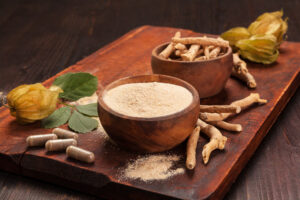
Integrating the top 3 best herbs for heart health into your daily routine can be transformative. These herbs can be consumed in various forms, including teas, powders, and supplements, and are a cornerstone of Ayurvedic heart health maintenance.
In addition to these top 3 best herbs for heart health, Ayurveda recommends a balanced diet, regular exercise, and stress management techniques like yoga and meditation for optimal heart health.
Adopting Ayurveda’s approach, particularly its top 3 best herbs for heart health, can lead to a profound improvement in heart wellness. This holistic path is not just about treating symptoms but nurturing the heart in a natural, balanced way.
Looking for personalized heart health guidance?
Book a consultation with our experts and improve your health with Ayurvedic practices.

The Holistic HIghway integrates traditional Western medical practices with Ayurveda medicine, creating a focus on prevention through nutrition, diet, and exercise; use of the latest genetic testing and other diagnostic techniques; and prescribed combinations of botanical medicines, supplements, therapeutic diets, detoxification programs, or stress-management techniques.

Integrative Health Expert | Ayurveda Practitioner | Author | Speaker
Kerry is a globally recognized leader in integrative medicine and the science of health known as Ayurveda. She is passionate about raising awareness of the need for a change in contemporary medicine that focuses on patient empowerment and a health-based (rather than disease-based) medical system.
Kerry is connected with The University of Pittsburgh Center for Integrative Medicine and remains a pioneer in the field of integrative medicine where she has developed a personalized system to manage chronic disorders by incorporating fundamental changes in diet, behavior, and stress while focusing on genetics.
This individualized program is so successful that many of her clients have achieved maximum healing and vitality after years of chronic problems!
More to Explore
Contact
Disclaimer
The sole purpose of all the website content is to educate and provide information about Integrative Health, Genetics and Ayurveda.This information is not intended for use in the diagnosis, treatment, cure. or prevention of any disease.
Stay Connected